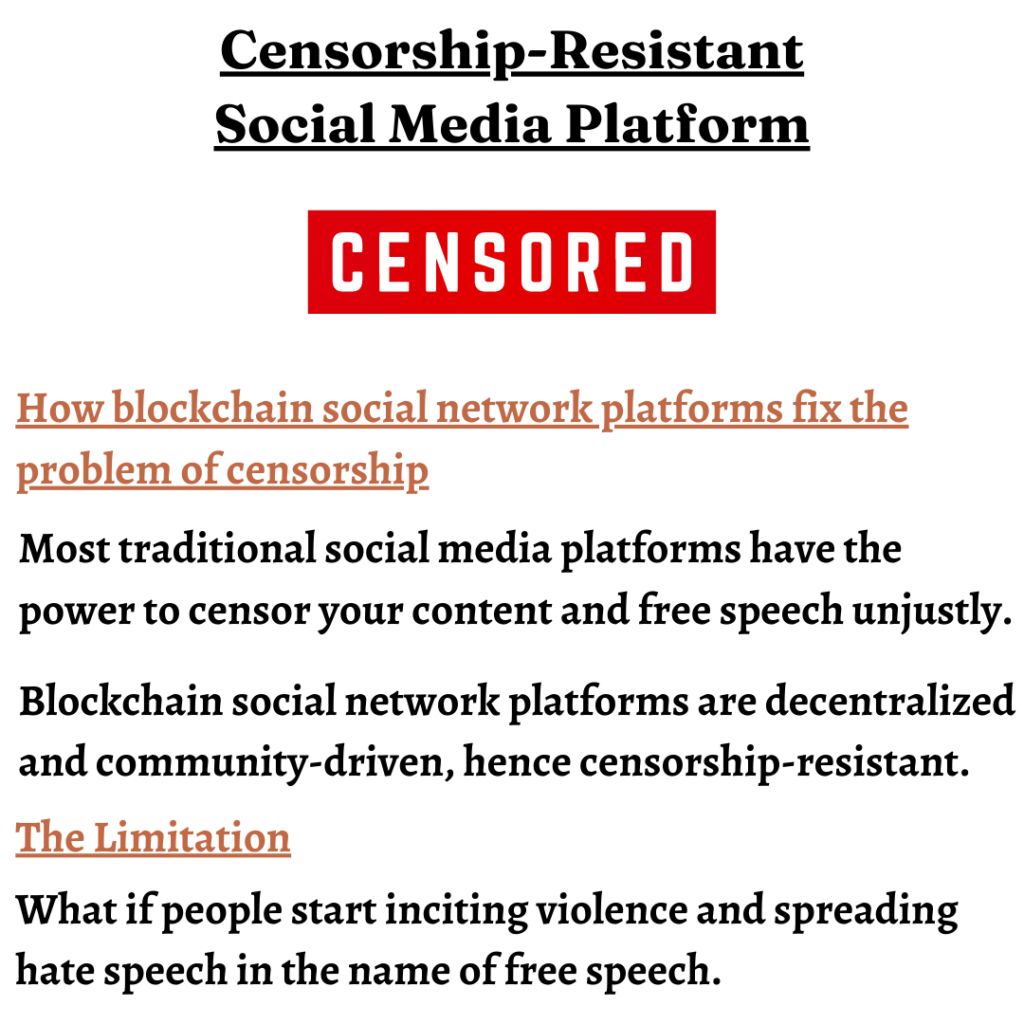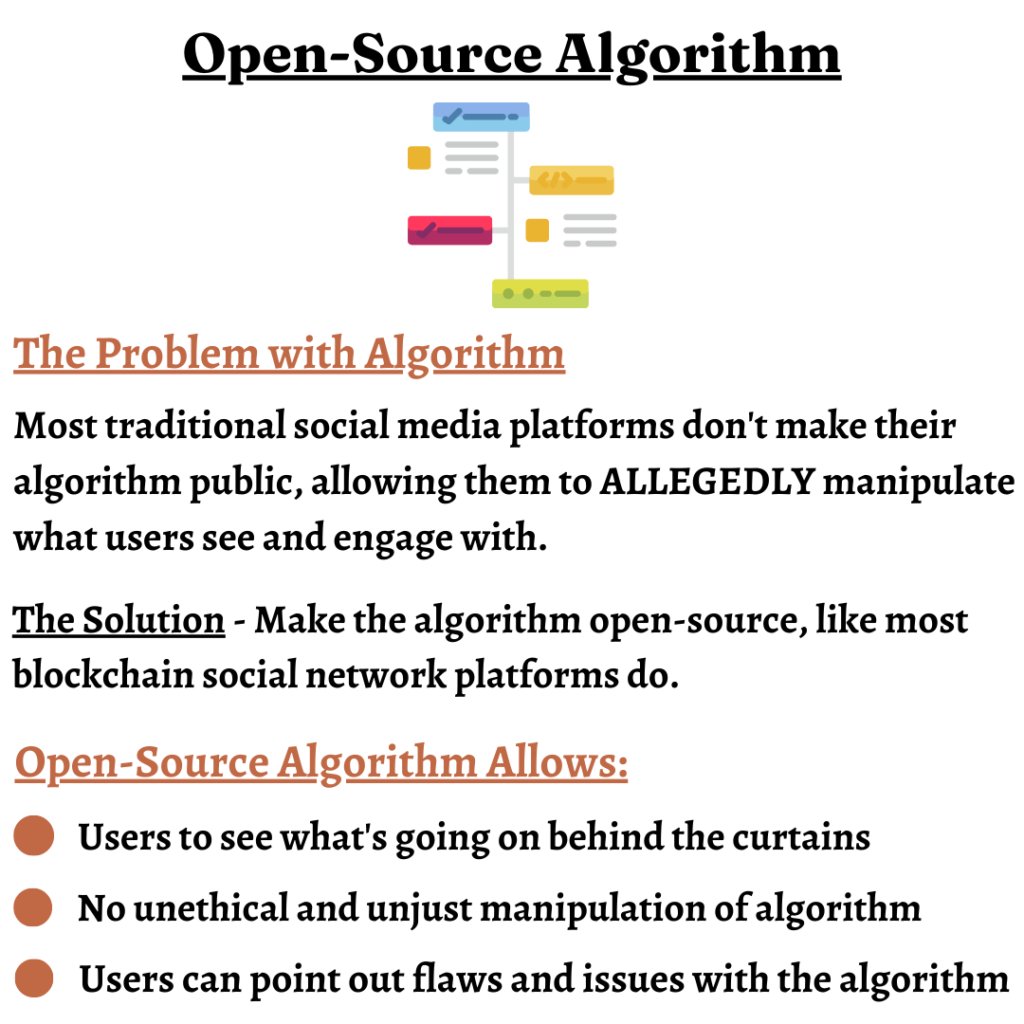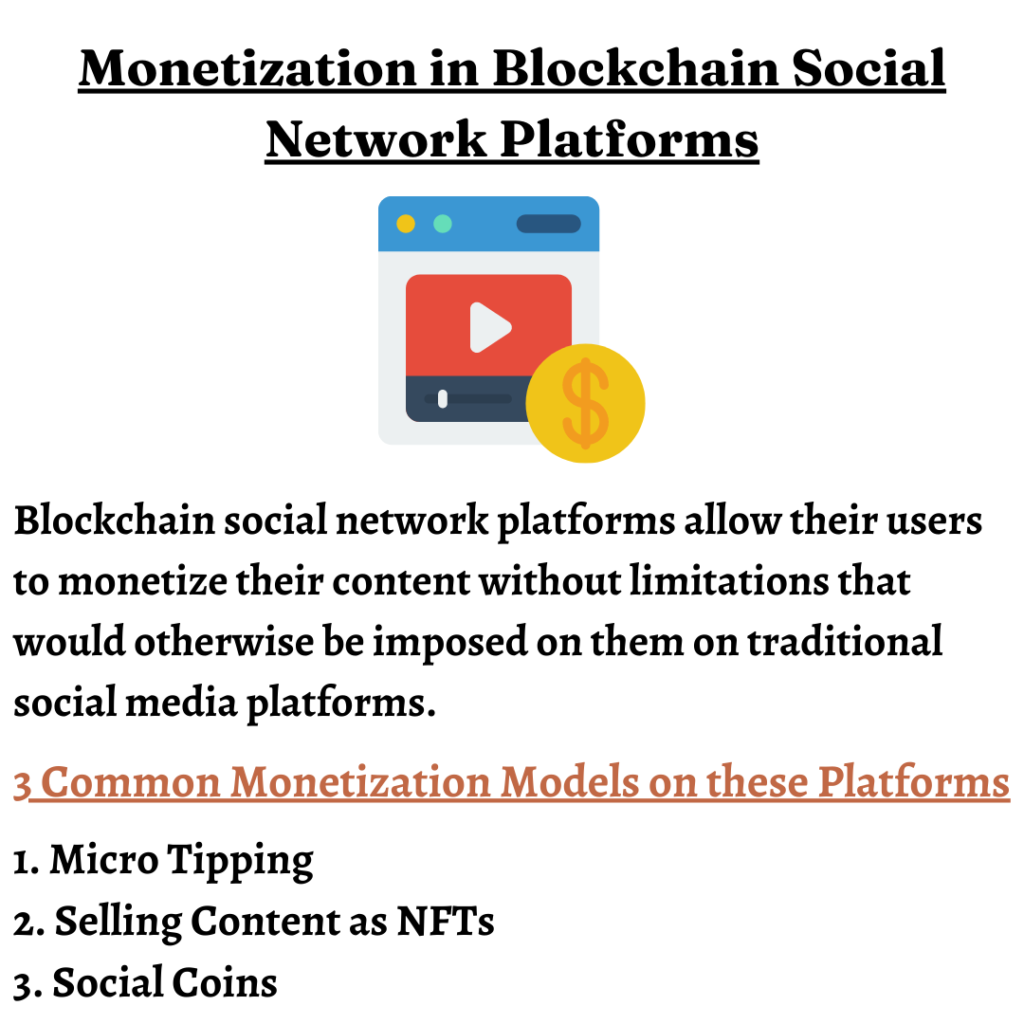Blockchain Social Network Platforms: Future of Social Media
Blockchain social network platforms are the next generation of social media.
Don’t believe it?
Why do you think Facebook, now Meta, announced the new metaverse platform, which is powered by Web3 and blockchain.
Twitter is also planning to integrate crypto into its platform. Something that will allow creators to earn cryptocurrency for their content.
Reddit is also planning to launch its own NFT marketplace on its platform. Plus, rumors have it Reddit will replace Karma points with cryptocurrency. It would open up a whole new world of opportunities if that happens.
But what do you think all of this tells us?
It tells us that blockchain social network platforms are indeed the future of the social media economy.
But before these big tech companies came in to capitalize on blockchain technology to create new innovative social media platforms, there were other small but equally ambitious companies and people working on similar projects.
In this article, we’ll have a closer look at some of these projects and their evolution, as that might tell us what to expect from the future.
Here’s what we’ll discuss today:
- What are blockchain social network platforms?
- Why use them? Why not use the existing ones?
- 5 Most promising blockchain social media projects
What are Blockchain Social Network Platforms?
These are social media platforms built on a blockchain, like the Bitcoin Cash blockchain, the Ethereum blockchain, the Binance Smart Chain, etc.
And since blockchain is mostly decentralized and has no central authority, you can expect the same traits from these platforms.
These platforms combine the technology of cryptocurrency, NFTs, DAOs, smart contracts and blockchain to create new and innovative ways to interact with each other that exceed the limitations of our traditional social media platforms.
Why Use Blockchain Social Network Platforms?
Blockchain social network platforms stand out in many ways, but these are three main factors that may compel the masses to shift to this newer version of social media.
Censorship

Most of the traditional social media platforms, like Facebook and Twitter, have the power to censor your content and free speech.
We’ve seen it happen time and time again, especially on Twitter, where people would question Twitter’s suspicious bans and decisions. Well, that’s what the whole recent Elon Musk and Twitter controversy was all about.
Elon Musk said he bought Twitter because he believed Twitter should be a place where people can freely express themselves within the bounds of laws without any restrictions or censorship.
Blockchain social network platforms are censorship-resistant since it’s decentralized and lacks a central authority. This means that no one can interfere with your free speech.
The Limitation
Free speech and all is great, but there has to be a point where we say that’s not free speech. What do we do when someone is inciting violence or spreading hate speech, or some milder version of that.
Many of these blockchain social media platforms, not all, are community-driven and run by community governance. So, it’s up to the community to decide how to deal with it.
But that leaves another risk, which is what if the entire community is corrupt. We’ve seen large groups and mobs of people driving extremist narratives before.
What do we do if they create their own decentralized social network?
On the brighter side, though, it’ll open up a platform for many comedians, musicians and artists that complain about censorship to freely express themselves and their art.
Algorithm

Most traditional social media platforms, like Twitter, Reddit, Facebook and YouTube, don’t make their algorithms public.
This leads to unethical manipulation of algorithms to suppress and promote specific content, type of content, or even content creators.
As a result, users get shadowbanned for no valid reasons, lose reach, lose engagement, etc.
Even if there’s a slight possibility that these platforms are manipulating the algorithm to show you the content they want to influence certain thoughts, ideologies and beliefs, you’ll never know, or at least you’ll never be able to prove it.
And that’s what most people fear and are fighting against.
Blockchain social network platforms solve this issue. Most of these decentralized social media platforms are totally open-source, meaning anyone can view and audit the underlying code and algorithm.
This means:
- Users will know what’s going on behind the curtains
- No manipulation of algorithms since there’s no one top guy controlling everything.
- Users can point out flaws and issues in the algorithm, which can then be fixed to improve the algorithm.
Monetization

Keeping all the political stuff aside for a moment, monetization is probably the most exciting part about all this.
The existing platforms and models that allow monetization are not efficient and effective enough.
Take YouTube as an example. YouTube takes around 45% of your ad revenue. Insane, right?
When you think about how little the ad revenue is anyway, you realize that Youtubers are probably earning pennies from it, which forces them to explore other options like paid promotions, sponsorships and courses.
But these blockchain social network platforms are bringing in some unique and innovative monetization models that will allow creators more freedom, flexibility and earning.
Micro Tipping – Micro tipping is a concept where you can tip a piece of content with a small amount of money (crypto). Think of it as a funny tweet or meme. You can show your appreciation by tipping a small amount, probably cents.
Reddit already has a similar model in place. It allows its users to give and receive awards.
But introducing crypto to it makes it actually profitable and the entire process extremely convenient for both the tipper and receiver.
Selling Content as NFTs – Imagine if you can buy your favorite person’s favorite tweet as an NFT. Pretty cool, right?
It would open up so many new and unique ways for creators to make money by selling their content.
See how people are making millions by flipping NFTs.
Social Coins – Some of these blockchain social network platforms offer social coins. It’s basically like betting on your favorite content creator, similar to how you bet on stocks.
You can buy social coins of any creator, which are like subscriptions to their exclusive content. The more people buy their social coins, the more the value of your token rises.
It’s like if you had the chance to bet money on PewDiePie when he had a thousand subscribers.
5 Most Promising Blockchain Social Network Platforms
The following are five blockchain social network platforms with the most potential, each with different functions and objectives.
Read.Cash
Read.Cash is a blogging platform where users can give or receive Bitcoin for writing blogs and comments. Simple and effective.
Users on these platforms have earned a total of over $700,000 in Bitcoin as of writing this article.
Entre
Entre is one of the most unique and interesting decentralized social network platforms. It’s like LinkedIn meets Twitter, Zoom and NFTs.
Entre, short for entrepreneurs, is basically for professionals of any field to come and post Twitter-like content, host meetings and carry out business transactions.
When you create an account on Entre, your profile is tokenized as an NFT. So, whenever someone follows you, it creates a decentralized on-chain relationship between you and that person.
The technicalities of it get quite complex, but overall, Entre has the potential to make it big.
SubSocial
Unlike others on this list, SubSocial is not really a blockchain social network, but it allows users to create their own.
There are different monetization models that SubSocial allows like tipping, ads, social tokens, NFTs and more.
Steemit
Steemit is one of the oldest blockchain-based social media platforms, built on the Steem blockchain. It allows content creators to earn crypto by producing and curating content.
Deso
DeSo is kinda similar to SubSocial, as it has a batch of subset social network platforms, over 200.
But unlike SubSocial, DeSo allows you to carry over your profile and its metrics from one platform to another, which is a completely new concept.
Imagine if you could take your Instagram profile over to Twitter and retain the same followers and likes.
DeSo allows monetization through NFTs, social coins or tokens, tipping, etc.
Final Thoughts
Every day, more and more new blockchain social network platforms are emerging. All it’ll take is one platform that provides the convenience, features and monetization options that people need for this industry to break into the mainstream.
And experts believe it’s going to happen. It’s just a matter of time.